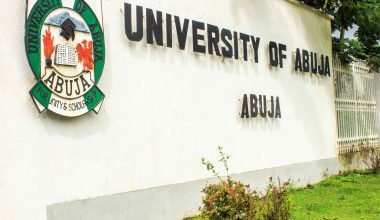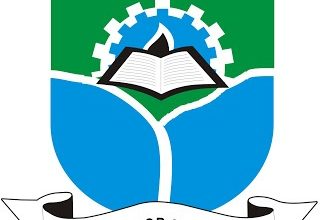As technology advances, Computer Science seems to be the bedrock of most IT related fields. If you are interedted in building a career in IT, selecting the right course under computer science in your undergraduate degree is important.
As the country strives to position itself as a hub for technological innovation and digital transformation, Nigerian universities are expanding and updating their computer science curricula to meet the demands of a rapidly changing industry.
These institutions offer a comprehensive range of courses designed to equip students with the skills and knowledge necessary for growth in different sectors of the tech industry, from software development to artificial intelligence and cybersecurity.
This article contains an official list of all courses in computer science in Nigerian universities in 2024. Whether students aim to become software engineers, data scientists, cybersecurity experts, or researchers in artificial intelligence, there is a choice for every student in the courses listed below.
Table of contents
Are there good Universities in Nigeria that offer courses in computer science?
Yes, there are good universities in Nigeria that offer courses in computer science and are known for their good academic programs, research output, and contributions to various fields. Some of these universities include:
- Federal University of Technology, Akure (FUTA)
- University of Ibadan (UI)
- University of Lagos (UNILAG)
- Ahmadu Bello University (ABU)
- University of Nigeria, Nsukka (UNN)
- Babcock University
- Federal University of Technology, Minna (FUTMinna)
- Covenant University
- Obafemi Awolowo University (OAU)
- Lagos State University (LASU)
These universities above are known for their commitment to academic excellence, research, and the graduation of well-informed students who meet the challenges of the modern world.
Read Also: LASUTECH Courses and Requirements | 2024
Do Nigerian Universities do Screening for computer science courses?
Yes, Nigerian universities conduct screening processes as part of their admission procedures for computer science courses.
These screenings are used as an evaluation of prospective students’ qualifications and readiness for University education. These screening process usually involve several steps including;
- Unified Tertiary Matriculation Examination (UTME)
This examination is Conducted by the Joint Admissions and Matriculation Board (JAMB), the UTME is a standardized test that all prospective university students in Nigeria must take. The score from this exam is an important aspect of the admission process.
- Post-UTME Screening
Many universities conduct their own post-UTME screening exams or interviews after the UTME. This additional screening helps universities assess candidates’ academic abilities and suitability for specific programs. The format and content of these screenings are very important for institutions.
- O’Level verification
O’Level (WAEC/NECO) results during the screening process. Universities verify these results to ensure that applicants meet the minimum subject requirements for their chosen courses.
4. Direct Entry Screening
For candidates seeking admission through direct entry ( those with advanced level qualifications, diplomas, or equivalent), universities conduct specific screenings to evaluate their credentials and academic history.
5. Supplementary Admissions
Some universities also conduct supplementary admission screenings for candidates who may not have initially met the cut-off marks but have other qualifications or achievements that make them suitable for admission.
Different universities utilize different screening processes, However, those listed above are generally common across most universities.
Read Also: : List of FUTO Courses and School Fees | 2024 Requirements
Does Nigerian University Accept WAEC/NECO results for computer sciences courses?
Yes, Nigerian universities accept both NECO (National Examinations Council) and WAEC (West African Examinations Council) results for computer science admission purposes.
These examinations are recognized by most universities across Nigeria especially universities that offer computer science and they serve as key components of the qualifications needed for university entry. Here are some details on how they are used:
- Senior Secondary Certificate Examination (SSCE) Results
Both NECO and WAEC conduct SSCE, which is taken by students at the end of their secondary school education. The results from these examinations are used for university admissions.
- Subject Requirements
Nigerian universities require candidates to have credit passes in five relevant subjects, including Mathematics and English Language, which are part of the NECO or WAEC results. The specific subject requirements can vary depending on the course of study.
- Unified Tertiary Matriculation Examination (UTME)
In addition to NECO and WAEC results, candidates who want to study computer science must also sit for the UTME, administered by the Joint Admissions and Matriculation Board (JAMB). A combination of a good UTME score and strong NECO or WAEC results enhances a candidate’s chances of gaining admission.
- Post-UTME Screening
After achieving the required UTME score, candidates present their NECO or WAEC results during the post-UTME screening process conducted by the universities. These results are used to assess the academic preparedness and suitability of the candidates for students who want to study computer science.
Getting a good result in WAEC/NECO is important for candidates who wish to study computer science in Nigerian Universities.
Read Also: Best 20+ Web Development Courses to Enroll in 2024
Courses in Computer Science in 2024
Here is a list of core courses in computer science in Nigeria
1. Introduction to Computer Science
This foundational course introduces students to the basics of computer science, including the history of computing, fundamental programming concepts, and the role of computer science in various industries.
2. Software Engineering
This course introduces the methodologies and tools used in the development of large-scale software systems. Students learn about software development life cycles, project management, and quality assurance.
3. Data Structures and Algorithms
This computer science course discusses the organization and manipulation of data. Here, students learn about various data structures like arrays, linked lists, stacks, and queues, as well as algorithms for sorting, searching, and optimization.
4. Operating Systems
Operating system courses teaches students the principles and design of operating systems. The course covers process management, memory management, file systems, and the role of the operating system in hardware and software interaction.
5. Database Systems
This course is focused on the design, implementation, and management of databases, this course teaches students about relational database management systems (RDBMS), SQL, and data modeling.
6. Theory of Computation
Here, Students explore the mathematical foundations of computer science, including formal languages, automata theory, and computability. This course provides a theoretical structure for understanding what can be computed and how efficiently it can be computed.
7. Computer Networks
This course covers the principles and practices of computer networking. Topics include network architectures, protocols, network security, and the design and management of networks.
8. Human-Computer Interaction
This course examines the design and evaluation of user interfaces. Students learn about user-centered design principles, usability testing, and the psychological aspects of human-computer interaction.
9. Artificial Intelligence
This course introduces students to the concepts and techniques of artificial intelligence (AI). Topics include machine learning, neural networks, natural language processing, and AI applications.
10. Computer Architecture
This course explains the design and functionality of computer systems. Topics include the structure and behavior of the central processing unit (CPU), memory management, and input/output mechanisms.
11. Computer Graphics
Students who study computer graphics in Nigeria are exposed to the principles and techniques of creating and manipulating visual content using computers, including 2D and 3D graphics, rendering, and animation.
12. Robotics
This course introduces the design, construction, operation, and application of robots, including robotic programming and the integration of sensors and actuators.
13. Bioinformatics
This interdisciplinary course involves biology and computer science, focusing on the analysis of biological data, such as genetic sequences and protein structures, using computational tools.
14. E-commerce Technology
Students learn about the technological infrastructure behind electronic commerce, including payment systems, security, and online business models.
15. High-Performance Computing
This computer science course involves the design and use of powerful computing systems to solve complex computational problems, including parallel processing and supercomputing.
What are other related courses in computer science?
- Electrical and Electronics Engineering
Covers the principles and applications of electrical systems, which are fundamental to computer hardware design and telecommunications.
- Management Information Systems (MIS)
This course includes both business and technology to help organizations manage and use information effectively. The Course covers topics like enterprise resource planning (ERP) and business intelligence.
- Information Systems
Focuses on the design, implementation, and management of information systems in organizations. Topics include systems analysis, database management, and IT project management.
- Data Science
Focuses on the extraction of knowledge and insights from structured and unstructured data using statistical and computational techniques. Courses include data mining, machine learning, and data visualization.
- User Experience (UX) Design
Concentrates on creating user-friendly interfaces and enhancing user satisfaction through usability and accessibility studies.
What is the average acceptance fee for courses in computer science in Nigeria?
The average acceptance fee for courses in computer science in Nigerian universities generally falls within the range of ₦20,000 to ₦100,000. Some of the average acceptance fees for courses in computer science include the;
- Federal Universities
- University of Ibadan (UI): ₦30,000 – ₦35,000
- University of Lagos (UNILAG): ₦20,000 – ₦25,000
- Obafemi Awolowo University (OAU): ₦20,000 – ₦25,000
- Ahmadu Bello University (ABU): ₦20,000 – ₦30,000
- Federal University of Technology, Akure (FUTA): ₦20,000 – ₦30,000
- State Universities
- Lagos State University (LASU): ₦20,000 – ₦30,000
- Olabisi Onabanjo University (OOU): ₦40,000 – ₦60,000
- Ekiti State University (EKSU): ₦50,000 – ₦60,000
- Private Universities
- Covenant University: ₦100,000 – ₦200,000
- Babcock University: ₦150,000 – ₦200,000
- Afe Babalola University: ₦100,000 – ₦150,000
These fees may be updated annually. It is recommended to check directly with the university for the most current acceptance fee information.
Frequently Asked Questions
Some of the best courses include a
Bachelor in computer application, bachelor in information technology (BIT), and bachelor in data science. Also, computer engineering is a good branch of computer science that should be considered if you want to earn high and work in a competitive world.
Here is a list of some easy courses under the computer science degree
Database systems
Programming languages
Software development lifecycle.
Conclusion
The comprehensive list of courses in computer science in Nigeria in 2024 reflects the evolving nature of the computer science field.
Nigerian universities are committed to providing students with the education and skills necessary to succeed in the tech industry, ensuring they are well-equipped to face the challenges and opportunities of the digital age.
References
- University.org– university listing
- Coursera.org– best computer science courses
Recommendations
- 25+ Professional Courses In Nigeria That Pay Good Money
- Top 20+ Courses That Allow Transfer to Nursing | Nigeria Vs UK
- 20+ Best Online Courses on Digital Marketing with Certificates
- Official List of POLAC Courses and Subject Combination |2024 Fees and Requirements
- Top 15+ Data Analytics Courses In Nigeria in 2024 with Certificates






